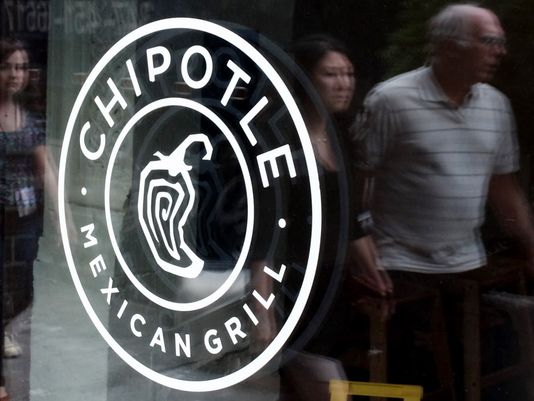Most Fast-Food Meat IN US Still Raised On Antibiotics
Of the 25 restaurants chains graded, only two – Chipotle and Panera Bread – got As for serving much of their meat from animals raised without regular use of antibiotics.
Friends of the Earth and other advocacy groups are hopeful that the recent scorecard will convince more companies to increase their transparency and adopt or improve their policies regarding antibiotic use in meat.
Consumer, food and health groups are calling on the CEOs of the nation’s top 25 restaurant chains to only serve meat and poultry that’s free of antibiotics.
Panera and Chipotle are the only chains that publicly affirm that the majority of their meat and poultry offered is produced without routine use of antibiotics.
Critics say the use of antibiotics in animals leads to bacteria becoming resistant to medicine. In June, almost 60 groups sent a letter to Subway’s CEO, Fred DeLuca, asking him to commit the company to doing more to reduce antibiotics use in the company’s supply chain. Panera and Chipotle, both of which have long made responsible food sourcing a major part of their branding, received the only two “A” grades.
“From bacon cheeseburgers to chicken nuggets, most meat served by America’s chain restaurants comes from animals raised in industrial-scale facilities, where they are routinely fed antibiotics to prevent disease that is easily spread in crowded, unsanitary, stressful conditions”, said Kari Hamerschlag, senior program manager at Friends of the Earth, in a press release.
Although easy to identify in food stores while perusing the meat aisle by labels and stickers, it appears a bit more hard to tell while eating at chain restaurants.
McDonald’s is reducing the routine use of antibiotics in chicken, and its main chicken-supplier, Tyson, said it would stop administering human antibiotics to chicken.
“Chain restaurants have been pushed to serve healthier food and people usually think that means fewer calories or less sugar”, says Jean Halloran, director of food policy initiatives at Consumers Union.
McDonald’s CEO Steve Easterbrook’s mantra was referenced when Madhusoodanan said, “If the corporation were serious about becoming a ‘modern progressive burger company, ‘ it would immediately implement a strong, accountable and transparent antibiotics policy across its supply chain”.
Now the FDA has only voluntary guidelines for food purveyors regarding antibiotic use.
The coalition said it gave Subway partial credit for its new policy because its website indicates only support for the “elimination of subtherapeutic use of antibiotics”, and it is unclear whether the company would end all routine antibiotic use in its supply chains. The problem is that many scientists believe it’s precisely this low-dose, continual prophylactic application of antibiotics that contributes to the development of drug-resistant bacteria. Consumer demand for meat raised without routine antibiotics is transforming the marketplace; the companies continuing with business-as-usual will be left behind.
The World Health Organization cautioned in a 2014 report: “A post-antibiotic era – in which common infections and minor injuries can kill – far from being an apocalyptic fantasy, is instead a very real possibility for the 21st century”.
These chains, all of which received an “F” on the scorecard, include Applebee’s, Arby’s, Burger King, Chili’s, Dairy Queen, Denny’s, Domino’s, IHOP, Jack in the Box, KFC, Little Caesars, Olive Garden, Outback Steakhouse Grill and Bar, Papa John’s Pizza, Pizza Hut, Sonic, Starbucks, Subway, Taco Bell and Wendy’s.








